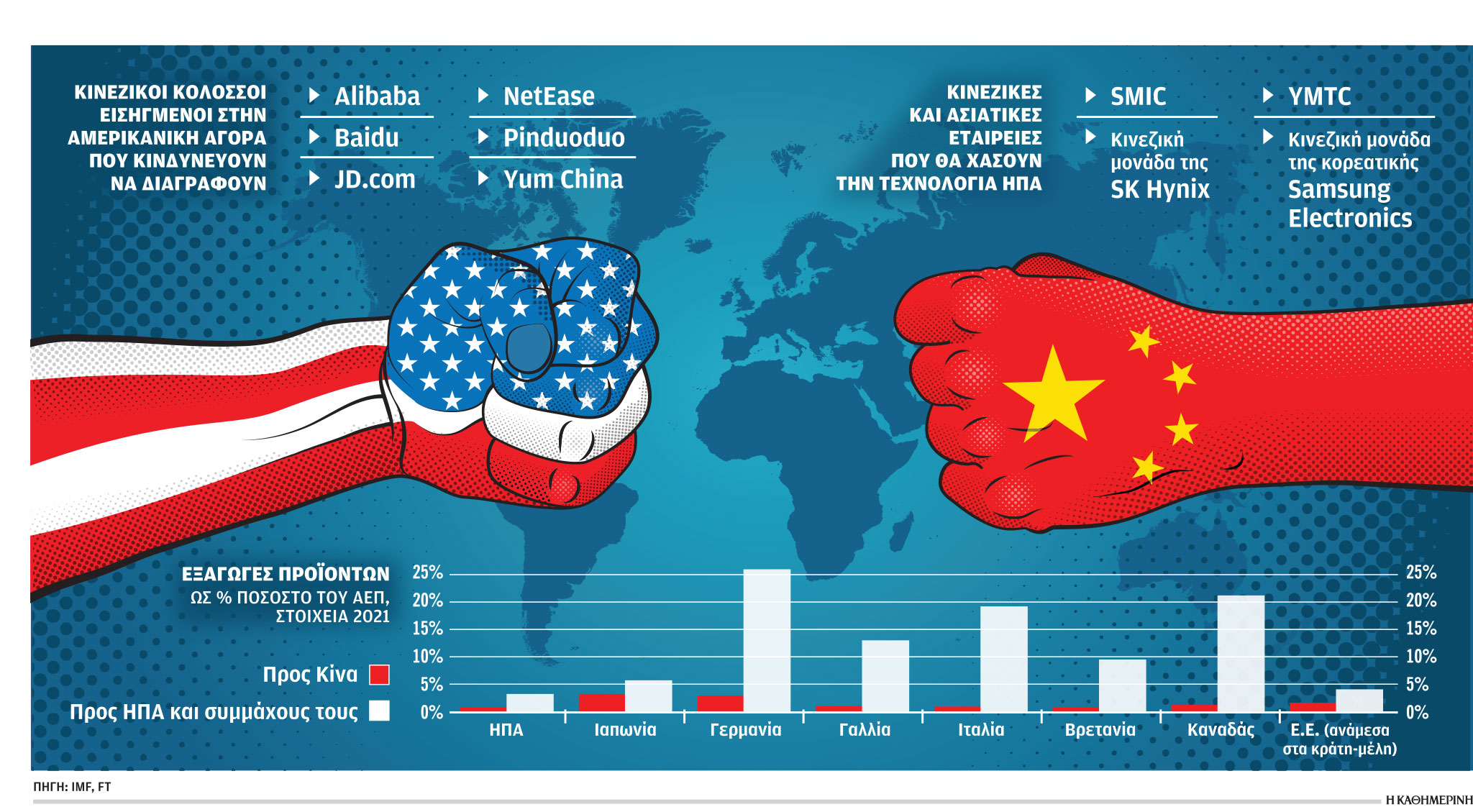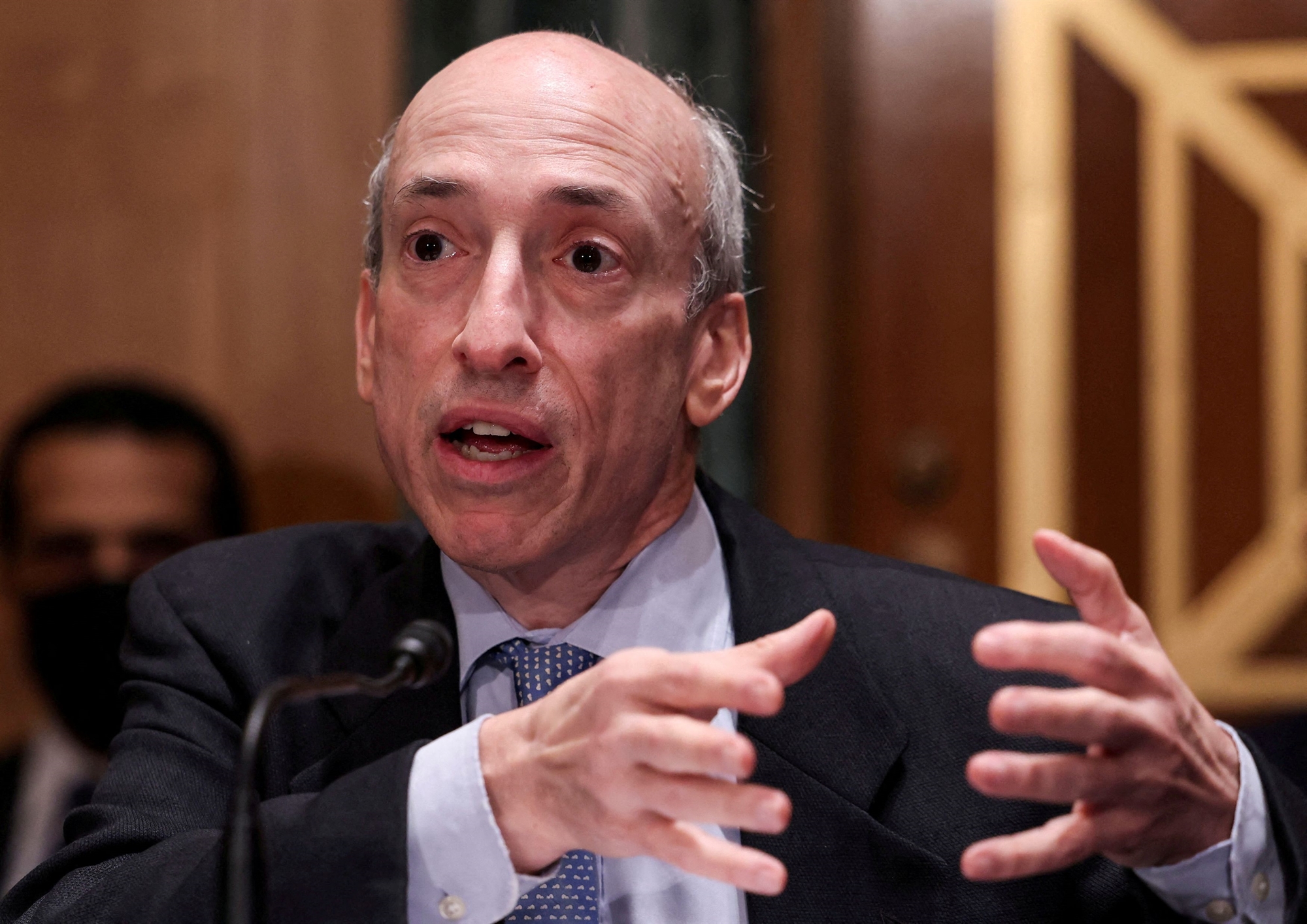
In late 2001, the financial world, at least in the developed world, was rocked by the high-profile scandal surrounding Enron, the Wall Street energy giant that used “creative accounting” to hide fraud and corruption inside. As a result of its sins, Enron then collapsed, taking about $11 billion of its shareholders’ funds with it into the abyss. A few months later, Washington passed the Sarbanes-Oxley Act, which requires all companies listed on the US market, whether US or foreign, to be subject to full accounting control by the US Securities and Exchange Commission ( SEC) and the American authorities in general. Today, the application of the Sarbanes-Oxley Act by the US Securities and Exchange Commission and its head Gary Gensler is not exactly pretentious, but at the second level becomes a parameter of the trade, economic and technological war between the two largest US economies. a planet that is at stake in world domination in new technologies and the economy.
US authorities are urging Chinese companies registered in New York to be audited to avoid delisting.
The controversial law is at the center of an economic tug-of-war between Washington and Beijing that has continued rather quietly in the shadow of the war in Ukraine and most recently in the shadow of tensions between the two giants over Nancy Pelosi’s visit to Taiwan. . It is being cited by US authorities calling on Chinese companies listed on the US market to comply so as not to be delisted from the US stock market. The threat of delisting from the US market affects about 150 of the 261 Chinese companies listed on the New York market, with a total market value of approximately $1.9 trillion. Among them are giants such as Alibaba, a competitor to Amazon, since it was blacklisted by the US Securities and Exchange Commission last week, as well as technology giants Baidu, JD.com and Bilibili, and many others, who achieved their “American dream” of listing on the New York Stock Exchange.
It is a fact that Chinese companies have so far avoided the scrutiny of US authorities, albeit not on their own initiative, but under the strict guidance of Beijing. And, of course, it’s not just the U.S. Securities and Exchange Commission’s attempt to prevent accounting irregularities and scandals that’s at stake. The exclusion of Chinese companies from the New York Stock Exchange began under the presidency of Donald Trump, when Washington cited national security issues, blacklisted and accused various Chinese companies of spying and collaborating with the Chinese military. That is why, just hours after Joe Biden’s inauguration, in January 2021, an appeal by Chinese giants China Mobile, China Unicom Hong Kong and China Telecom Corp, addressed to the American president, reached the White House for their re-listing. on the New York Stock Exchange. A few days earlier, the New York Stock Exchange removed them, subject to the relevant order of the previous government. Since then, the SEC and Gary Gensler have steadily added Chinese companies to a long list of candidates for exclusion from US market indices.

America’s blacklist grows, Alibaba’s target
Although eight years have passed since September 2014, Alibaba’s initial public offering on the New York Stock Exchange (NYSE), which raised $25 billion from the Chinese giant, still seems recent. become a global competitor to Amazon, is blacklisted by the US Securities and Exchange Commission (SEC) and is in danger of leaving the NYSE.
On the same day, Chinese Internet companies Mogu, Cheetah Mobile and Boqii Holding were added to the list. This was the latest wave of companies added by the SEC to candidates for exclusion from US market indices. The most recent wave was in May, when 80 Chinese companies were added. The success of Alibaba and its founder, Jack Ma, has inspired similar ambitions among many other Chinese companies that analysts say do not want to be big companies in the world’s second economy. They aspire to become international companies, but have found themselves in a maelstrom of economic and technological competition between the world’s two largest economies.
The hopes of Chinese business, perhaps even part of Beijing, that Washington would change its policy since Joe Biden came to power in the country turned out to be false very soon, as it turned out that the new administration was moving in a different direction. style, but in the same spirit with the previous one, at least against China. However, there was at least one case with a Chinese company that fully justified the attitude of the US authorities, as well as its exclusion from the Nasdaq high-tech index. The reason is Luckin Coffee, which was founded in 2017 and opened 2,400 stores in China in just two years. It entered the US market in 2019 and raised $645 million in an initial public offering, with all indications that it was a rising star that would compete with international coffee chains like Starbucks. But very quickly, Luckin Coffee was accused of presenting false earnings. In 2020, internal investigations uncovered management fraud that led to a $310 million increase in sales and revenue. The company was delisted from the Nasdaq and eventually filed for bankruptcy in May. However, her case strengthened the position of the US authorities against Chinese companies. So at the end of 2020, the US Congress passed a law prohibiting the listing of Chinese companies on the New York Stock Exchange if they raise any objections to the control by the US authorities.
Washington threatens to ban microchip exports to Chinese businesses
During the week, Washington announced that it would likely ban the export of US technology and equipment to Chinese processor factories.
The justification for the threat, which is not yet certain to materialize, is again based on the well-known argument that the national security of a superpower is threatened, although this time it is about companies that have nothing to do with the Chinese military.
The move, apparently directed against China’s Yangtze Memory Technologies (YMTC), a rising power in space, is a direct reference to similar bans again enacted by the previous administration, the Donald Trump administration, in an apparent attempt to halt the technology’s upward trajectory. China and its transformation into a technological superpower.
The purely business side is Washington’s attempt to protect Western Digital Corp and Micron Technology’s American manufacturing plants that make memory microprocessors, so-called NAND microprocessors. This is because China’s YMTC, which was founded only six years ago, is indeed a powerful competitor to the American industry thanks to its extremely low prices.
According to consulting firm Yole Intelligence, YMTC accounts for 5% of the world’s NAND microchip production, while American Western Digital and Micron account for about 13% and 11%, respectively. However, YMTC’s numbers are nearly double last year’s and seem to have the momentum to outshine the US industry.
After all, the White House referred to this risk last year when, in a related report, it called Chinese industry a “threat” to American industry. In the same report, he even mentioned that YMTC is the national champion of China and the recipient of subsidies reaching $24 billion.
However, regarding the continuation of US policy in its economic and technological competition with the world’s second largest economy, it is significant that YMTC is already under investigation by the US Department of Commerce. However, the reason for the investigation is that the industry in question is being accused of violating Washington’s ban on the export of American equipment and, in particular, microprocessors to Chinese telecommunications giant Huawei.
In short, he is accused of supplying a Chinese company that Washington under Donald Trump has targeted more than anyone else, when the superpower systematically pressured its allies around the world to exclude Huawei from their own fifth-generation (G5) networks. After all, a month ago, information was leaked that the Biden administration was planning to impose restrictions on the export of microchip-making tools to China, with the ultimate goal of stopping the development of China’s largest microchip industry, SMIC.
After all, last week the US Congress passed a law providing for multibillion-dollar investments aimed at developing the US microprocessor industry and aggressively competing with China. However, industries that will be eligible for the relevant subsidies will be subject to severe restrictions on the production or upgrading of microchips in some countries and China in particular.

Controls
Commenting on the protracted tug-of-war between US and Chinese authorities over access by US auditors to the books of Chinese companies, US Securities and Exchange Commission Chairman Gary Gensler said that “it depends on Beijing’s decision not to delist Chinese companies from US companies.” stock exchange on which they are listed.

Bid
Hoping for a constructive attitude from Chinese companies, Robin Li, co-founder and CEO of Chinese tech giant Baidu, stressed that “most Chinese companies are open to audit by US authorities because they want to be registered companies with significant status in the US, mainly for in order to have access to American capital.”

Effects
Referring to the possible implications of Chinese companies being kicked out of the US stock market they are listed on, economic analyst James Fok noted a few days ago that “many Chinese companies don’t just want to be big Chinese companies, they want to be big international business companies.”
Source: Kathimerini
Lori Barajas is an accomplished journalist, known for her insightful and thought-provoking writing on economy. She currently works as a writer at 247 news reel. With a passion for understanding the economy, Lori’s writing delves deep into the financial issues that matter most, providing readers with a unique perspective on current events.